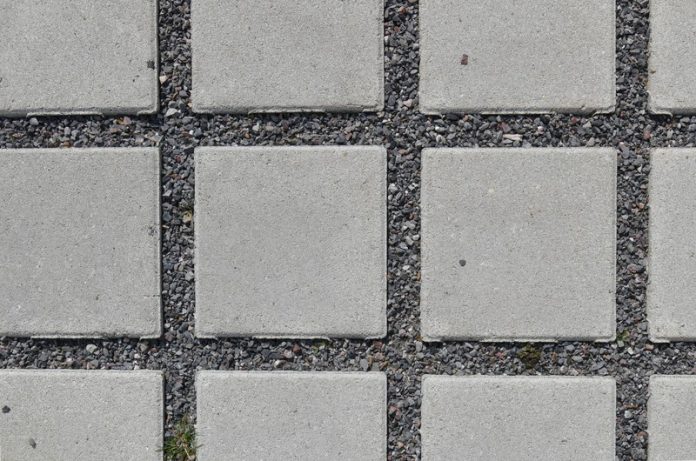Introduction
The major problem with modern infrastructure is the covering of dirt with non-porous materials. Fortunately, permeable pavers are here to solve that problem. If you want to install a driveway or walkway with permeable pavers, you can search for “paving companies near me” and hire professionals for the job. For now, let’s debunk a few prominent permeable paving myths.
The Myths
- Site analysis is difficult – One of the most common myths about permeable paving is that it requires a lot of complex site inspection. Fortunately, that’s a myth. Otherwise, most new paving companies wouldn’t be capable of offering permeable paving. Any paving company that has been in the industry for a couple of years knows that permeable paving is a bit technical, but site analysis for permeable paving isn’t too different from what’s required for interlocking pavers.
All a company needs to do is a few load-bearing tests, soil tests, and plan about installation methods, and permitting processes. It’s rather a quick process for experienced paving companies. Even if you have to stick to a more experienced and slightly more expensive contractor, it’s better than hiring shoddy companies that don’t even take into account the subsurface before installation.
- ADA compliance is not present – Now that’s just not true. Any major and reputed paver manufacturer rigorously tests their products for strength, firmness, and skid resistance. They want their products to be used in as many places as possible. The pavers come with versatile and accessible designs and as long as your contractor knows about ADA compliance and sticks to those requirements, you can get a permeable paver walkway that’s accessible by wheelchair.
- Not usable on clay soils – This myth comes from everyone’s generic understanding of lay. Clay is dense and hence difficult for water to penetrate through. So, most people think that when permeable pavers are used on clay soils, rainwater may fill up the subbase and destroy the walkway or driveway. However, engineers have solved this dilemma a long time ago.
When the ground doesn’t have enough pores, to allow quick infiltration of rainwater, a tank is added to the subbase with outflow pipes connecting to a different location. So, when water isn’t penetrating through the soil quickly enough, the outflow pipes redirect the water at a controlled rate to a different place. You can even modify this tanked system for harvesting rainwater.
The rate of flow of water from the outflow pipes is dictated by the aperture of the pipe. Moreover, such a tanked system does not have any limitations. It can easily be installed irrespective of the ground conditions. Moreover, it holds and slows the flow and cleans out the water as well.
- Damaged by the frost – There are different types of permeable pavers in the market. Some of them are porous in nature while others are interlocking structures with tiny gaps in between to allow water to pass through. So, homeowners have a misconception that when these gaps and pores collect water and expand during the cold winter months, the surfaces may get damaged. Others think that the frost-induced expansion will bring greater structural damage.
However, all those concerns are unnecessary for permeable pavers. Water never sits on the surface long enough for freezing and turning into ice. It flows down quickly into the soil or is redirected away by a system of tanks and pipes. Since water doesn’t freeze inside or around the pavers, there’s no risk of damage from expansion. Damage by expansion is a valid concern if you opt for permeable concrete. However, pavers are solid and offer stronger frost resistance during the winter season.
- Clogs easily – This myth is a mystery since there are no paving companies that have ever experienced or even had concerns about such issues. Permeable pavers have voids on the pavers or in between the joints and even if weeds or mud clog those voids, they won’t stop the flow of water. That’s because mud and weed themselves are permeable.
Moreover, reputed paver manufacturers engineer their paving blocks to be far wider than regular pavers. So, even if the blocks are clogged, water will find a lot of room to make its way to the sub-base. Even in the worst-case scenario where a certain area of a permeable pavement gets completely clogged by an impermeable material, the water would simply travel to the unclogged section and seep into the ground through that place.
- Permeable paving can’t be used in heavy-loaded areas – Permeable paving is better at interlocking than standard pavers and this feature alone reduces the pressure exerted on the sub-base by as much as 40 percent. Apart from that, rigorous tests and experimentation with the material suggest that it is more than capable of handling heavy-loaded areas.
Even if you keep the hydraulic benefits of permeable paving out of consideration, its strength, stability, and tolerance are more than enough to compete with standard paving. Even if the pavement has to tolerate hundreds of tons of load, permeable paving is a competitive and reliable choice.
- Expensive – Homeowners shy away from permeable paving since the material cost and installation cost can be higher than standard paving. However, despite the steep upfront costs, permeable paving is cheaper in the long run. Even when you compare short-term gains, water storage and linear drainage make permeable pavers more competitive since they protect the soil from erosion and damage and save you from the high fees of fixing linear drainage clogs.
In the long run, the pavers are more durable than standard paving and hence require less frequent repairs. Moreover, they are very easy to maintain. A light brush is usually all you need to maintain them in pristine condition.
Conclusion
Permeable pavers are one of the best innovations since it allows water to seep into the ground and replenish the underground water table. It also subdues pollution since it limits runoff into local water bodies. You can search for “paving companies near me” and hire professionals to build a driveway out of permeable pavers.











